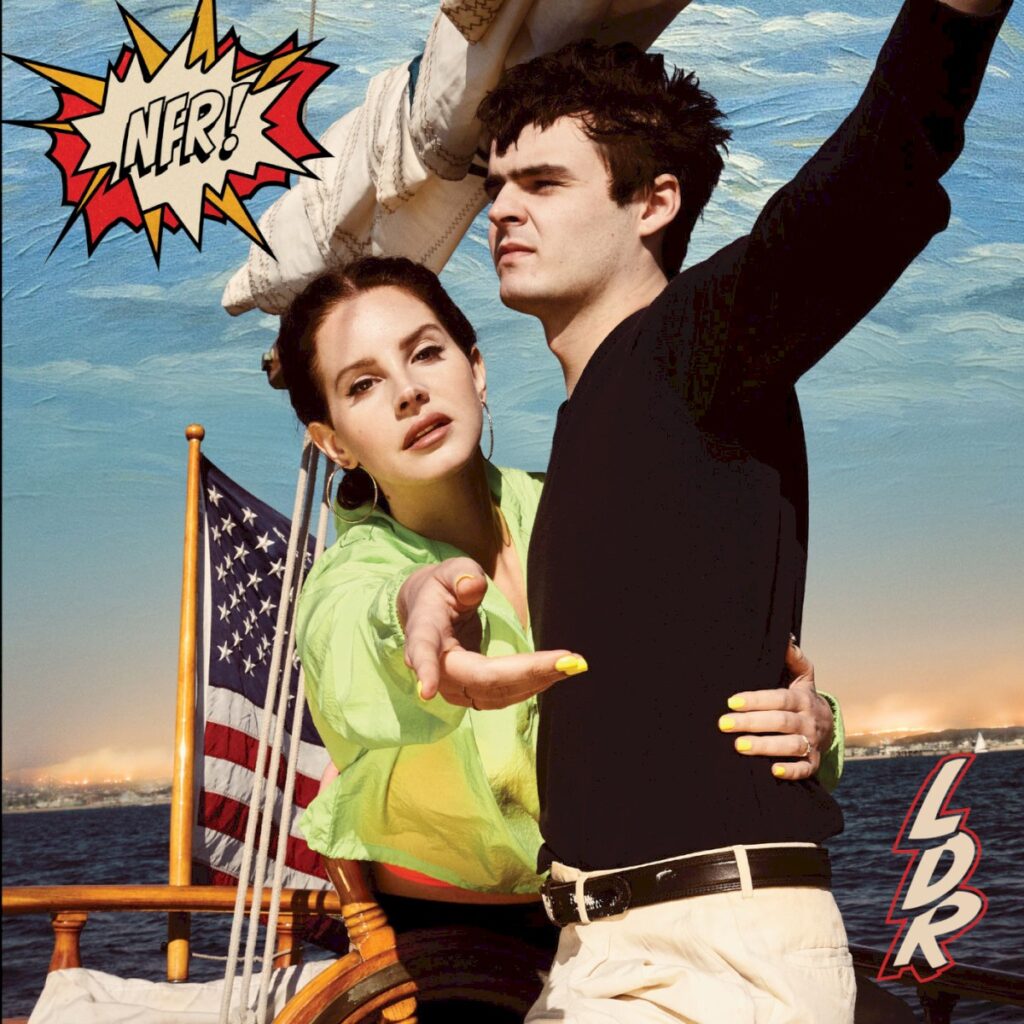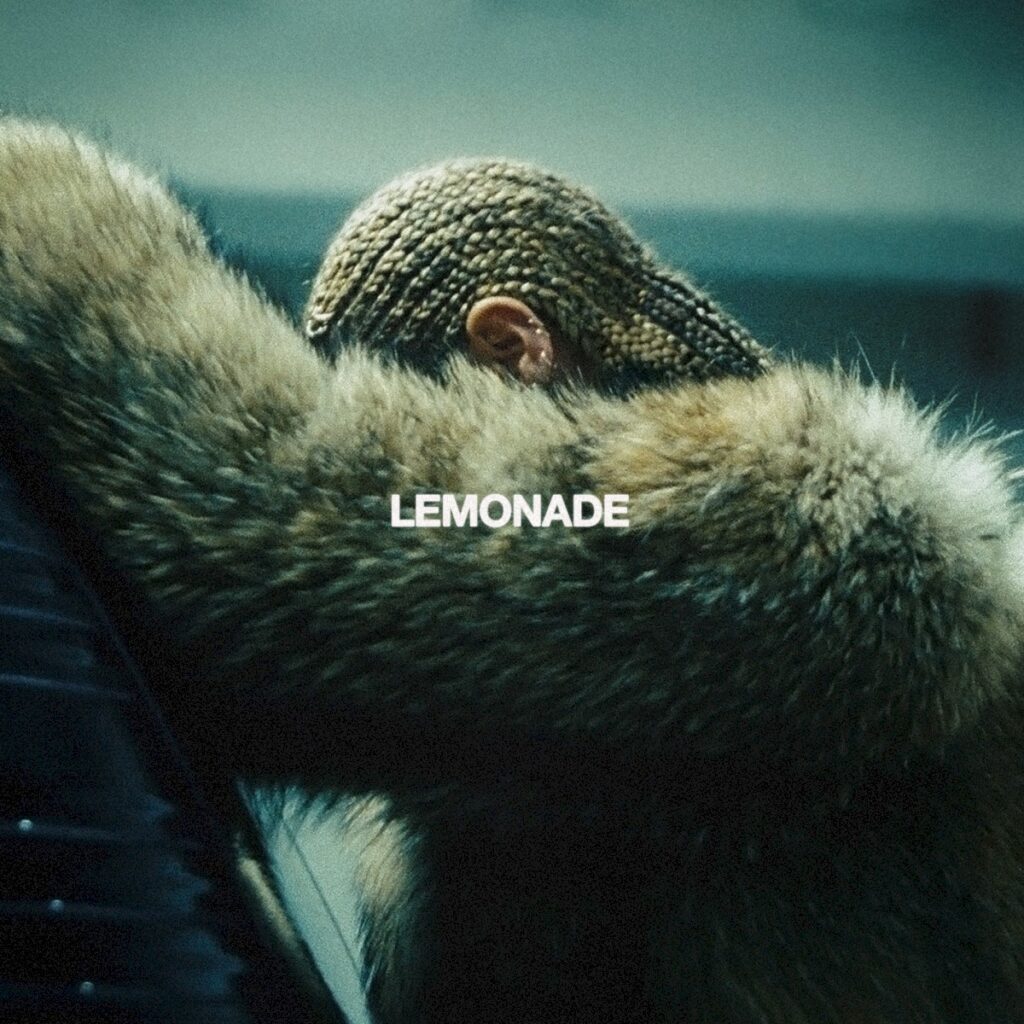6.
Lorde, ‘Melodrama,’ 2017

Well, summer slipped us underneath her tongue
Our days and nights are perfumed with obsession
Half of my wardrobe is on your bedroom floor
Use our eyes, throw our hands overboard
I am your sweetheart psychopathic crush
Drink up your movements, still I can’t get enough
I overthink your punctuation use
Not my fault, just a thing that my mind do
Lorde’s 2013 debut, Pure Heroine, was a snapshot of disaffected youth punctuated by sardonic black humor beyond her years. After four years, her second album, Melodrama, sees Lorde on the cusp of adulthood, at a remove from the overnight stardom prompted by her first album. Lorde challenged the notion of Melodrama being a strict concept album, whose central theme revolves around the framework of a single house party, portraying a panoramic view of youthful and emotional exuberance. Each track navigates the spectrum of experiences associated with early adulthood, from heartbreak to solitude, intimacy to grandeur, exuberance to self-reflection. The album captures the cyclical nature of revelry and introspection, mimicking the emotional rollercoaster of a real-life gathering. Inspired by the storytelling prowess of Paul Simon’s 1986 album Graceland, Lorde infuses Melodrama with metaphoric elements like the “teeth of great white sharks,” conveying powerful imagery and emotional sincerity. Thematically, Melodrama explores the tumultuous conflict between public life and personal growth, marked by Lorde’s shift from collective pronouns like “we” and “us” in Pure Heroine to a more introspective “I” narrative. Forged during a transitional phase in her life, Lorde confronted the early stages of adulthood and her disillusionment with fame in Melodrama. Fame has the potential to keep creative minds hermetically sealed away from their former lives, their worldview myopic, and out of touch with the rest of society, but the opposite seems to be true here.
Melodrama is characterized by its emotional incisiveness and lyrical inventiveness. Songs such as Liability and Writer in the Dark showcase Lorde’s ability to convey vulnerability with haunting, raw poignancy. Her songwriting paints vivid pictures of isolation (Liability), empowerment amidst the wreckage of heartbreak (Green Light), and the pursuit of ephemeral joy (Homemade Dynamite). In the track Green Light, which Lorde described as a “traditional breakup song,” the emotional narrative is not just about parting ways but is also a celebration of freedom and self-discovery. Lorde employs dynamic lyrical shifts that range from the heady ambiance of a lively party to the solitude of introspection. In Perfect Places, she juxtaposes lovesick ecstasy with self-awareness, calling into question the very nature of these “perfect places” she long seeks to define. This introspective honesty is pronounced in the way she frames her emotions, tying them to the transience of youth and the quest for identity.
Sonically, Melodrama is both a throwback and a progression. Produced alongside Jack Antonoff, the album is built on a foundation of traditional pop structures, imbued with maximalist flair. The compositions stray from the minimalist beats characteristic of Pure Heroine, as Lorde embraces a richer, more elaborate soundscape ornamented with piano melodies, drums, and synth layers. Antonoff’s signature is evident in the contrast-rich arrangements, embracing elements of 80s-inspired synth-pop while retaining elements of indie-pop introspection. Tracks like Sober and Supercut illustrate this blend, as they traverse between jubilant peaks and contemplative troughs, maintaining a balance between energetic momentum and thematic coherence. The track The Louvre, in its gleaming synths and heartswell harmonies, captures an immersive bliss, a shared frequency of love just as irrepressibly grandiose as its sound. It’s the kind of connection that, even once it’s gone, lightens your bones forever.
Three years, loved you every single day
Made me weak, it was real for me, yeah, real for me
Now I’ll fake it every single day
‘Til I don’t need fantasy, ’til I feel you leave
But I still remember everything
How we’d drift buying groceries, how you’d dance for me
I’ll start letting go of little things
‘Til I’m so far away from you, far away from you
5.
Lana Del Rey, ‘Norman Fucking Rockwell!,’ 2019

You took my sadness out of context
At the Mariners Apartment Complex
I ain’t no candle in the wind
I’m the board, the lightning, the thunder
Kind of girl who’s gonna make you wonder
Who you are and who you’ve beenThey mistook my kindness for weakness
I fucked up, I know that, but Jesus
Can’t a girl just do the best she can?
Catch a wave and take in the sweetness
Think about it, the darkness, the deepness
All the things that make me who I am
Lana Del Rey is one of the most complicated stars, a constantly unresolvable puzzle—someone who once called her own work “more of a psychological music endeavor” than pop. Norman Fucking Rockwell! is Lana at her deepest, and it arrives at a time when the history of America as we know it is being rewritten. NFR! is an intricate reflection on American culture, disillusionment, and personal turmoil. The album title itself references the iconic 20th-century American artist Norman Rockwell, known for his idyllic portrayals of American life. His best-known works used a wondrous narrative style to center comfort and simplicity: a pastoral idea, painted and personified, of the American Dream. Del Rey juxtaposes these nostalgic images with stark modern realities, underscoring the disparity between fantasy and reality in American culture. Themes of Americana are pervasive throughout the album, with Del Rey weaving references to Southern California mythology, Old Hollywood glamor, and the classic American Dream. The album acts as a critique of these concepts, dissecting them with a raw and sardonic edge, which becomes evident in tracks like The Next Best American Record and The Greatest, where she grapples with contemporary societal issues and personal existential crises. Her use of historical and cultural references adds layers to the narratives she builds, as seen in Mariners Apartment Complex, where she blends personal introspection with nods to classic American culture.
Besides the overarching societal themes, Norman Fucking Rockwell! is a deep dive into Del Rey’s personal world of love, heartbreak, and nostalgia. Songs like Love song and California offer tender, introspective moments that contrast with the grandiose cultural critiques, painting a multifaceted picture of Del Rey’s artistic and emotional range. Del Rey’s lyricism on this album is characterized by its raw honesty and biting wit. She employs a conversational style that is rich with storytelling and poeticism. Lines like “God damn, man child / You fucked me so good I almost said ‘I love you’” from the title track establishes Del Rey’s forthright, unapologetic approach to songwriting. In the nine-and-a-half-minute lullaby called Venice Bitch, she sings the line “fresh out of fucks forever” like a lilting lady of the canyon and curses like the sailors on the cover, treating California like a conceptual promised land.
NFR! is a departure from Del Rey’s earlier work, gravitating towards a more stripped-down, yet richly textured sound. The album is rooted in folk-rock and soft rock but frequently interspersed with psychedelic and folk-rock overtones, heavily influenced by the Californian sounds of the 1960s and 1970s. Del Rey and Producer Jack Antonoff have crafted a sound that is both vintage and contemporary, employing piano ballads, layered guitar textures, and lush string arrangements. Known for his work with artists like Taylor Swift and Lorde, Antonoff brings a subtlety and sensitivity to the album that enhances Del Rey’s vision without overpowering it. Venice Bitch stands out as the album’s sonic central piece, blending psychedelic elements with folk influences, a testament to Del Rey’s willingness to experiment with length and form. Tracks like The Greatest boast lush, Randy Newman-esque arrangements, characterized by unique chord progressions and haunting orchestration that complement Del Rey’s vocal style. And probably there is no other pop star who could palatably cover Sublime’s Doin’ Time and turn its mall-reggae into something so balmy and sweet.
If this is it, I’m signing off
Miss doing nothin’ the most of all
Hawaii just missed that fireball
L.A. is in flames‚ it’s getting hot
Kanye West is blond and gone
“Life on Mars?” ain’t just a song
Oh, the live stream’s almost on
4.
Beyoncé, ‘Lemonade,’ 2016

“You can taste the dishonesty, it’s all over your breath.” Beyonce’s sixth studio album and second visual album, Lemonade, is where she found out Jay-Z is cheating on her. The album is structured as a song cycle that narrates Beyoncé’s emotional journey through Jay-Z’s infidelity. Influenced by the classical German Lieder, the album navigates through the Kübler-Ross model of grief, excluding one song, Formation. Lemonade is a meditation on betrayal, resilience, self-worth, liberation, and the female experience, particularly from an African American perspective. It delves deep into the struggles and triumphs of Black womanhood, integrating historical and generational narratives. Beyoncé draws inspiration from Black feminists and literary works such as Zora Neale Hurston’s Their Eyes Were Watching God and Octavia Butler’s Kindred, infusing the album with elements of black folklore and Afrofuturism.
A significant thematic element of the album is its focus on healing and reconciliation, documented through the song cycle that traverses various emotional states. The album moves from anger and betrayal toward forgiveness and redemption, mirroring the stages of grief. Historically and socially, it stands as a testimony to turning personal and collective hardship into empowerment, as symbolized by Jay-Z’s grandmother’s analogy of turning life’s lemons into lemonade. The first couple of tracks of the album, such as Hold Up and Sorry manifest the initial turmoil, with lyrics that speak to the wrath and betrayal she feels. As the album progresses, everything builds to something more profound, more complete: a prayer about how love can fracture the self. Rooted in the heart of Lemonade is a dissection of cycles of violence (from the verbal, to the spiritual, to the physical) against women, specifically black women. Beyonce attempts not only to unveil the emotional toil it has placed on her (like in the catchy Love Drought and the gorgeous Sandcastles), but also the ways it perpetuates in our community as a whole (as in the country-twinged Daddy Lessons), and how she has managed to overcome the power of that same narrative. Lemonade feels like an exercise in dissonance, the act of holding two warring ideas in your head: You can love someone but also hate them, adore your father and also resent him, and want to cry and twerk at the same time.
Lemonade’s soundscape is an adventurous blend of genres, including R&B, rock, country, blues, hip-hop, and more, reflecting Beyoncé’s mastery of genre-bending music. This cross-genre approach follows her critically acclaimed 2013 self-titled album and stands as a testament to her status as a post-genre pop star. Beyoncé helms a large team of collaborators including renowned producers such as Diplo and Just Blaze, alongside artists like James Blake and Kendrick Lamar. Throughout Lemonade, each track’s compositional elements are meticulously crafted to reflect the stage in the emotional journey it represents. For instance, Pray You Catch Me, the opening track, features somber and introspective melodies that set the stage for the unfolding narrative. Daddy Lessons, intertwines Beyoncé’s personal history with wider themes of familial and cultural legacy, using country music—a divergence from her usual style—to emphasize narrative and thematic weight. Beyoncé also ventures into less traditional sounds for a mainstream pop album, such as the rock-infused Don’t Hurt Yourself featuring Jack White.
Dishes smashed on my counter from our last encounter
Pictures snatched out the frame
Bitch, I scratched out your name and your face
What is it about you that I can’t erase, baby?
When every promise don’t work out that way